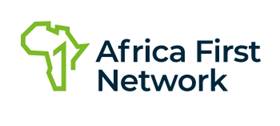NEWS: Global Gateway & Africa First Network
The foreign policy magazine “Business & Diplomacy” has published an article on the EU’s infrastructure offensive in emerging and developing countries that is well worth reading. In it, author Stefan Tetzlaff builds a bridge to the Africa First concept.
“Overall, these plans are similar to proposals made by Martin Schoeller and Daniel Schönwitz in their book Africa First”: this is how Dr. Stefan Tetzlaff, historian and expert on development policy, comments on the EU’s Global Gateway Program in the current Business & Diplomacy issue.
Indeed, investing in infrastructure is at the heart of the Africa First concept. After all, infrastructure is the basis for entrepreneurial engagement, investment and inclusive growth. And continued low interest rates in the global North offer the opportunity of the century to direct portions of the capital overhang to where it can make a particularly big difference.
The EU’s Global Gateway program, announced at the end of 2021, is therefore a big step. It envisages mobilizing up to 300 billion euros within seven years for infrastructure investments in emerging and developing countries (especially in Africa). In doing so, the EU is relying primarily on private capital – another parallel to Africa First.
Global Gateway & Africa First
Das außenpolitische Fachmagazin „Business & Diplomacy“ hat einen lesenswerten Beitrag über die Infrastruktur-Offensive der EU in Schwellen- und Entwicklungsländern veröffentlicht. Autor Stefan Tetzlaff schlägt darin die Brücke zum Afrika-First-Konzept.
„Insgesamt erinnern diese Pläne an Vorschläge von Martin Schoeller und Daniel Schönwitz in ihrem Buch Afrika First“: So kommentiert Dr. Stefan Tetzlaff, Historiker und Experte für Entwicklungspolitik, das Global-Gateway-Programm der EU in der aktuellen Business-&-Diplomacy-Ausgabe.
In der Tat: Investitionen in die Infrastruktur sind der Kern des Afrika-First-Konzepts. Denn Infrastruktur ist die Basis für unternehmerisches Engagement, Investitionen und inklusives Wachstum. Und die weiterhin niedrigen Zinsen im globalen Norden bieten die Jahrhundertchance, Teile des Kapitalüberhangs dorthin zu lenken, wo es besonders viel bewegen kann.
Das Ende 2021 angekündigte Global-Gateway-Programm der EU ist deshalb ein großer Schritt. Es sieht vor, binnen sieben Jahren bis zu 300 Milliarden Euro für Infrastruktur-Investitionen in Schwellen- und Entwicklungsländern zu mobilisieren (besonders in Afrika). Dabei setzt die EU vor allem auf privates Kapital – eine weitere Parallele zu Afrika First.
